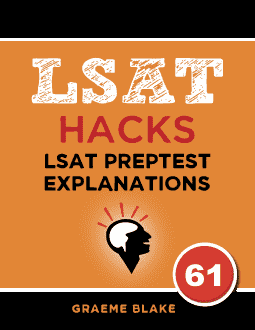QUESTION TEXT: As often now as in the past newspaper journalists use…
QUESTION TYPE: Paradox – Exception
PARADOX: Two facts:
- Compared to the past, journalists are now equally likely to use direct or indirect quotes to report false and unsupported claims.
- But, journalists are now less likely to dispute those claims.
ANALYSIS: First, let’s be clear what this is talking about. Suppose a politician says “the sky is orange, not blue.”. A journalist could report that, by quoting the politician directly. Journalists currently are as likely to do this as they ever were.
But, in the past, the journalist was more likely to have also said “of course, the politician is wrong: the sky is in fact blue”. Now, journalists are more likely simply to provide the quote without challenge.
Your job is simple. Find the answer that does not explain why journalists are now less likely to challenge claims.
There’s no way to prephrase this type of question. Just remember the one thing you’re trying to explain, and keep your mind open for possible explanations. It’s fine to use real world knowledge to judge the plausibility of the answers.
Note that I almost skipped over the right answer because it seemed relevant. But being relevant isn’t enough to explain the situation. The right answer actually makes the situation more confusing.
I called this question type a paradox, because “Paradox” and “most helps to explain” questions test the same skill. I label them all “paradox”.
___________
- This provides newspapers with a new reason not to dispute claims. There’s no known advantage to disputing, and this adds a disadvantage.
- This shows that journalists increasingly aren’t knowledgeable enough to dispute claims. To dispute a claim you generally need to know why it might be wrong.
- If you’re sympathetic to a false or unsupported view, you’re less likely to challenge it.
- CORRECT. This answer shows that journalists should challenge claims. If their articles have debate, they’ll get more readers.
So if this answer is true, the reluctance to challenge claims is even more confusing. - This shows a reason why journalists don’t criticize. Note that this is a weak answer: it doesn’t say if this factor is a new risk for journalists. And we’re looking for something new that explains the decrease in challenges. Still, since this provides a reason why journalists refrain from challenges, it’s at least on target. Answer D makes the situation more confusing, so it clearly is the better answer.


Leave a Reply